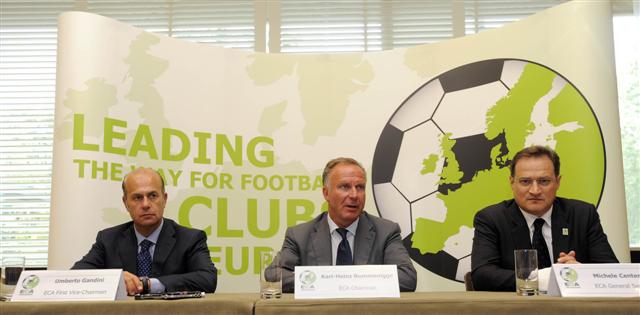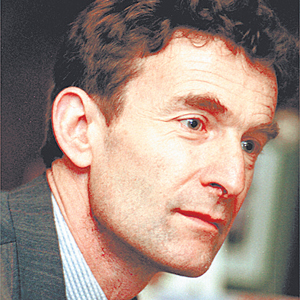The European Club Association may not be a household name among football fans but Europe’s largest grouping of clubs is beginning to show its teeth.
Unlike its predecessor, the elitist G14, the ECA has no fewer than 197 members across the entire spectrum of the professional game, all speaking with one voice.
Since its establishment two years ago, the ECA has been eager to stay onside with football’s governing bodies and move away from the threat of a European super league.
But as this week’s annual meeting proved, the ongoing club-versus-country debate is as intense as ever.
As reported by insideworldfootball, ECA chairman Karl-Heinz Rummenigge and his colleagues are becoming increasingly frustrated at expensively paid players being injured whilst on international duty.
They want action in the form of insurance protection and they want it soon. It’s a laudable concept. Missing highly prized stars on the field is bad enough. Then having to foot the bill to nurse them back to full fitness is somewhat of a double whammy.
The one thing insurance payments can’t do, of course, is banish the agony of the fans. Tottenham Hotspur supporters are inconsolable after two of their most influential players were unluckily ruled out just as the club are about to embark on their first ever Champions League campaign.
Michael Dawson and Jermain Defoe were both injured playing for England and could be out for two months but they weren’t the only ones. Arsenal have lost Theo Walcott for maybe almost as long while across the continent it’s the same story. Bayern Munich’s Arjen Robben, injured at the World Cup, could miss the rest of the year.
No-one is suggesting for one moment that there should be no international fixtures or that there is an instant solution. But what happened this week starkly illustrated that the relationship between the clubs and the governing bodies is not as cosy as both sides would sometimes have us believe.

You only had to be in the room at Geneva’s Intercontintenal hotel, when a stony-faced Rummenigge called for action, to know there is trouble at mill.
Normally pretty conciliatory, Rummenigge was not prepared to tolerate the clubs being exploited any longer. Too much power? Far from it, said the one-time West German goal machine. The power lay with the national associations, he argued.
While the ECA is an increasingly established force, it still has a lot to learn, however, in terms of media friendliness.
At the conclusion of the first day of its two-day annual meeting, club directors changed from their grey suits into coloured shirts and shorts for an informal eight-a-side tournament at a nearby stadium.
Five mini-buses were laid on for the delegates, split into five teams, but your correspondent, the only journalist present at the time, was not allowed to join them - and this after organisers had invited the media along to watch.
Taxi or nothing was the instruction. Perhaps the fact that UEFA president Michel Platini was competing posed some sort of security risk. Or maybe some of the older delegates didn’t want to show off their portly physiques or lack of footballing skills.
As it happened, Platini’s green team were well beaten, the great man failing to find the net even once in the round-robin event. He didn’t seem to care, which was the right attitude. After all, it was only a kick-about which made the media ban all the more absurd.
Andrew Warshaw is a former sports editor of The European, the newspaper that broke the Bosman story in the 1990s, the most significant issue to shape professional football as we know it today. Before that, he worked for the Associated Press for 13 years in Geneva and London. He is now the chief football reporter for insideworldfootball

